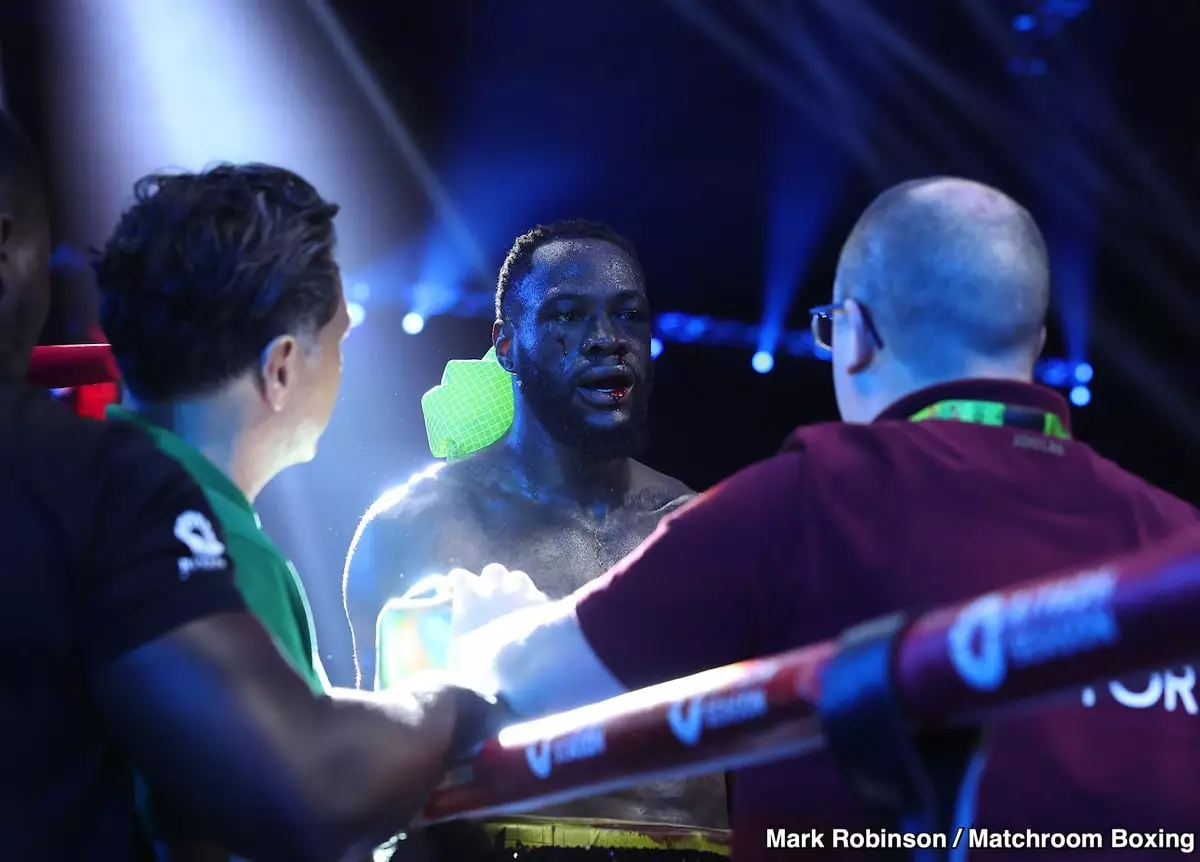Boxing, a sport steeped in tradition yet wrought with unpredictability, often throws unexpected matchups into the ring, altering the trajectory of fighters’ careers. A prime example of this evolution is the potential clash between Deontay Wilder and Dave Allen—a concept that a year ago would have seemed far-fetched. Wilder, known for his explosive punching power, faces a significant comeback after a challenging period marked by defeats against Joseph Parker and Zhilei Zhang. In contrast, Allen has experienced a renaissance of sorts, recently showcasing his resilience and tactical prowess by avenging a controversial loss against Johnny Fisher.
The fluidity of the heavyweight division is well-illustrated by the chain of events that has led us to this discussion. Eddie Hearn, Allen’s promoter, recently disclosed that following his knockout victory over Fisher, Allen expressed a keen interest in facing Wilder. Hearn’s response, “Why not?” suggests a readiness to entertain this intriguing bout. Such conversations underscore the evolving dynamics in boxing, where fighters can quickly transition from being out of contention to prime candidates for high-profile bouts.
Wilder’s Comeback Trail
However, for this potential showdown to materialize, Wilder first must clear his immediate hurdle: a matchup with Tyrrel Herndon. Winning convincingly is crucial not just for Wilder’s confidence but also for reestablishing his standing in a highly competitive environment. Should Wilder navigate this test successfully, the prospects of drawing him back to the UK lend themselves to both commercial viability and fan intrigue. The mention of a lucrative payday highlights the financial motivations behind such matchups, which often eclipse the purely athletic considerations in modern boxing.
The boxing community has long been characterized by its attraction to stories, and the narrative of Wilder against Allen evokes interest not only because of their respective journeys but also due to Allen’s rising popularity. Hearn accurately identifies Allen as a key figure among British boxing’s elite, comparable to heavyweights such as Anthony Joshua and Tyson Fury. This factor adds weight to the potential bout, drawing in viewers who appreciate the underdog narrative that Allen represents.
The Intriguing Dynamics of Styles
Yet, the question remains: would Wilder genuinely be interested in engaging with Allen? Despite Allen’s newfound prominence, Wilder likely sees himself as the superior fighter; his history of explosive knockouts positioned him as a fearsome contender, and this could influence his eagerness—or lack thereof—to take on Allen. The American heavyweight’s experience in the UK, having previously fought Audley Harrison back in 2013, could factor into his decision-making process regarding this fight.
While Wilder has the edge in experience and power, Allen’s recent performances have shown that he can compete at a high level, making this matchup compelling for boxing aficionados. Allen has thrived under the pressures of the ring and established a connection with fans through his tenacity and underdog spirit. This creates a classic heavyweight narrative of invincible power against unwavering determination, captivating the imagination of boxing supporters everywhere.
The uncertainty surrounding whether these two will meet in a ring adds an exciting layer to the sport, reflecting the current era’s cultural appetite for compelling narratives rather than mere outcomes. With the potential for Wilder to return to the UK and electrify the boxing scene once again, all eyes will be watching as these developments unravel. The heavyweight division is always ripe for surprises, reminding us that in boxing, anything can happen—and often does.


Leave a Reply